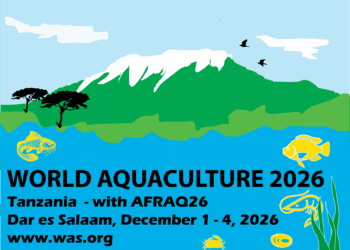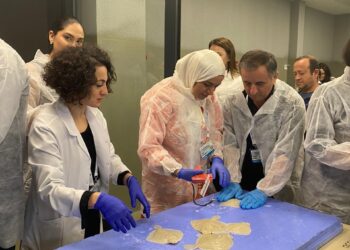Transforming agri-food systems to adapt to climate change – Transforming agri-food systems is essential to adapt to human-caused climate change and reduce greenhouse gas emissions. This, in a nutshell, is what the AR6 Synthesis Report: Climate Change 2023 by the Intergovernmental Panel on Climate Change (IPCC), the UN body for the assessment of climate change science, highlights.
The synthesis report, produced in a collaborative effort between governments and scientists around the world, confirms that human activities, mainly through greenhouse gas emissions, have unequivocally caused global warming. These include unsustainable energy use, land use and land-use change, and consumption and production patterns.
The report points out that 22% of global greenhouse gas emissions right now come from agriculture, forestry and land use.
The summary also paints a clear way forward, stressing that the solution lies in climate resilient development and holistic measures to adapt to climate change that also reduce or avoid greenhouse gas emissions.
“Agriculture and food security are already threatened by climate change, particularly in small island developing states, least developed countries and landlocked countries, affecting the livelihoods of small farmers, pastoralists, forest-dependent people, fishers, indigenous peoples and women,”
said FAO Assistant Director-General Maria Helena Semedo.
“We must act now on a large scale. Building sustainable and resilient agri-food systems is key to addressing the climate crisis, food insecurity and biodiversity loss,” she stressed.
“Agriculture, including crop and livestock production, forestry, fisheries and aquaculture, offers solutions that contribute to both adaptation and mitigation,” he added.
The summary further highlights how water is central to all sectors for their adaptation. Against this backdrop, FAO supports integrated water resources management to address water-related challenges in the context of climate change. Looking ahead, the 2023 UN Water Conference is of particular importance for agriculture.
FAO climate change strategy
FAO is already working on the report’s recommendations, including the promotion of climate resilience and adaptation in the agri-food sector.
The FAO Climate Change Strategy looks beyond food production, considering crops and livestock, forests, fisheries and aquaculture and related value chains, livelihoods, biodiversity and ecosystems holistically, as well as embracing the indispensable role of women, youth and indigenous peoples as essential agents of change.
Since becoming partners in 2016, FAO and the Green Climate Fund (GCF) have increased climate investments in high-impact projects that make the agriculture, forestry and fisheries sectors more efficient, inclusive, sustainable and resilient to climate change. The portfolio now exceeds 1 billion.
The organisation also works on specific initiatives including the SAGA and SCALA programmes that focus on climate solutions in some of the most vulnerable parts of the world.
Anticipating and responding to major threats to agri-food systems related to extreme weather events is another important area of FAO’s work. This includes preventive action through early warning systems consisting of extreme weather warnings and forecasts, funds and technical resources.
“COP28 is just around the corner and the IPCC report gives the final push for action in the ‘race towards a better world’. We have the evidence and the innovative solutions and we know what works. It is time to break down barriers and create synergies,”
said Zitouni Ould-Dada, Assistant Director of FAO’s Office for Climate Change, Biodiversity and Environment and focal point for the IPCC.
Transforming agri-food systems to adapt to climate change








